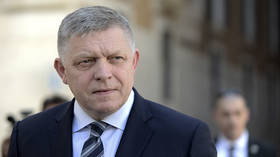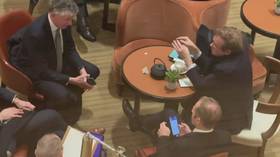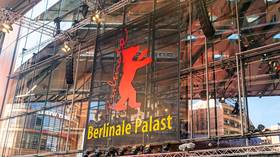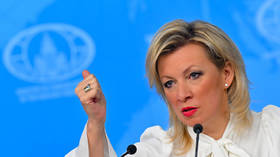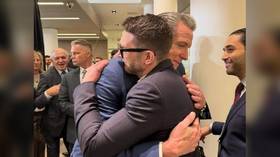Facebook frontline: Kiev calls up 'online army' amid information war
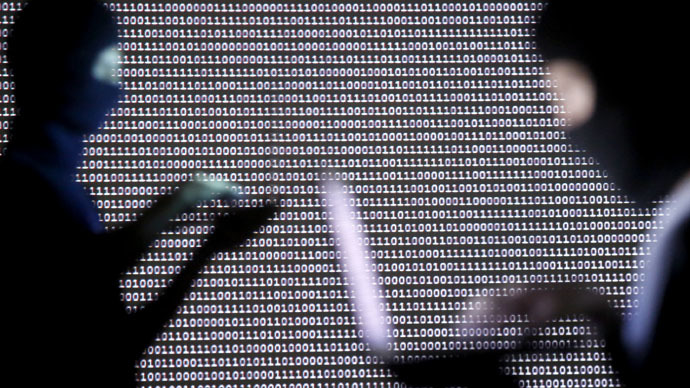
A day after Ukraine announced it is joining the information war by creating an 'online army,' the Information Policy Ministry entered into its first controversy. It has reportedly called on bloggers to create accounts to spread information useful to Kiev.
The ministry has begun accepting applications from people wanting to join the online army. Once users are registered, they reportedly receive instructions on how to proceed.
One of the users published the first set of instructions he allegedly received from the “internet army headquarters.”
The task outline is to create as many fake accounts on social media as possible without raising suspicion. The instructions explain that it is preferable to set up a new email account that uses a Western server. It also advises to set up new Twitter, Facebook, and VKontakte accounts (the Russian equivalent of Facebook).
READ MORE: Online army: Ukraine seeks to recruit bloggers for ‘truth-telling’ crusade
The instructions also detail that users must use real names, be careful not to add too many friends (in order to seem legitimate), and select their geographic location to be in eastern Ukraine or Crimea.
In order for the account to seem more authentic, users are encouraged to write a few personal posts and comment on non-political issues.
However, another instruction was distributed to bloggers on the same day. It gave the same blueprint for creating a fake account in Crimea or Donbass, but claimed that is the way “information agents of Kremlin work.”
The fact that two versions of the text were being passed around received some negative comments on the Facebook page where in the information was published.
Vesti, a Ukrainian media source, reported that blogger Aleksander Baraboshko – who is an aide to Ukrainian Information Policy Minister Yury Stets – said the version regarding “information agents of the Kremlin” is the correct one, while the other version may have been sent out to some users due to a computer glitch.
Ukraine’s Information Policy Ministry was created in late 2014 to pursue information security in the country. Journalists dubbed the new institution the ‘Ministry of Truth’ after the propaganda ministry in George Orwell's novel '1984.'
In early December, the ministry announced the creation of an information warfare department.
“You don’t need trolls and bots to deliver truthful information to those communicating on the internet. It is obvious for social network veterans,” Tass news agency quoted Ukraine’s information policy minister, Yury Stets, as saying back in January. “To do so we need to unite people influential in social media and they will tell the truth to everyone who reads them.”
These tactics follow Stets’ official announcement on Sunday, which revealed plans to create a national TV channel called ‘Ukrainian Tomorrow,’ which would broadcast to an international audience.
READ MORE: Moscow slams Kiev for ‘information war’ over 100+ Russian media ban list
Ukraine is taking the information war very seriously. On Saturday, Kiev said it is stripping more than 100 Russian media outlets of their accreditation. The list includes TASS, Rossiya Segodnya, and all Russian TV channels except Dozhd, according to government spokesperson Yelena Gitlyanskaya. The outlets will reportedly be without accreditation until the end of the Ukraine conflict.
Russia has criticized Kiev’s decision. “The openly discriminatory decision by Ukraine's parliament to strip Russian mass media of accreditation at the bodies of state power is an extension of the policy to clear the country's media space of alternative points of view,” Russian Foreign Minister Sergey Lavrov said in a statement on Saturday.
The decision comes as a “backdrop to the latest resolutions (the Minsk peace agreement) by the Normandy Quartet's leaders” and “calls into question Kiev's interest in a peace settlement,” Lavrov added.
Russian presidential spokesman Dmitry Peskov told TASS on Saturday that Moscow will not respond to Kiev’s actions by limiting the work of Ukrainian media. “Russia is a country where media activity is regulated by law, and where Russian and foreign journalists have equal rights to obtain information,” he said.



